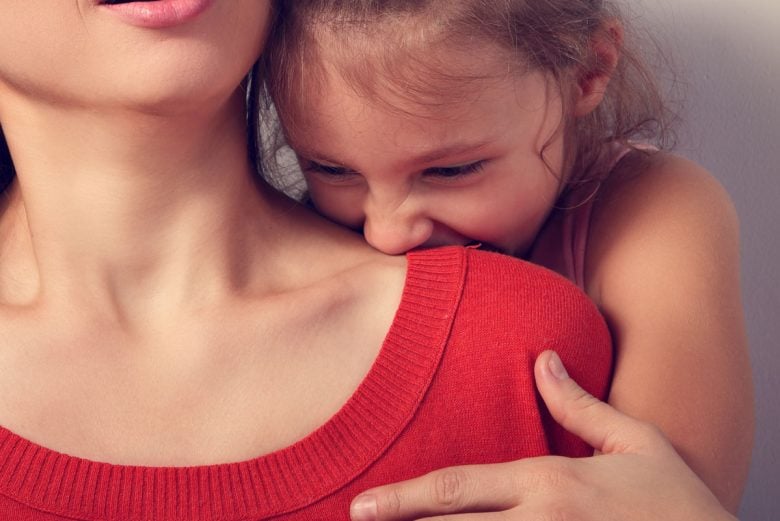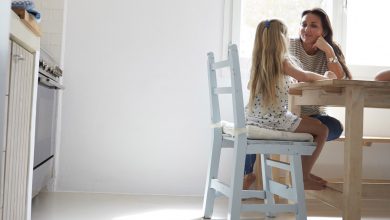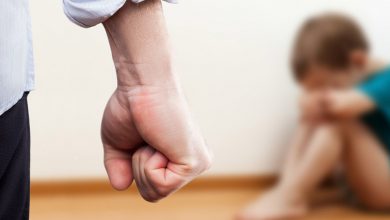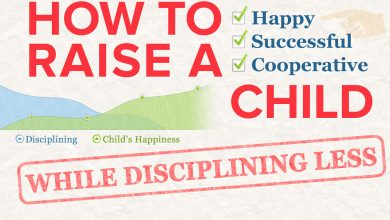
When children act out, they have reasons. Let’s discover them.
Biting, hitting, kicking, screaming. When your child gets upset, they can let loose. It worries you, especially when they’re around other children.
Of all Types of children, Type 3 children tend to act out most physically, but every Type will bite for different reasons. In this episode, Carol and Anne explore the reasons behind acting out—and what you can do to stop it.
This week’s Parenting Practice
This week, reverse roles with your child and role play in order to teach a correct behavior—rather than just telling them to correct their misbehavior (such as biting). Listen to this episode to hear how Anne and Carol would play this out. Make sure to give a lot of praise to reward good behavior.
Transcript of podcast episode
Carol: You basically got to get in their face a bit and just say, “No biting. That’s not okay.” Welcome to The Child Whisperer podcast. I’m your host, Carol Tuttle, author of the best-selling parenting book, “The Child Whisperer.” I’m with my co-host, Ann Tuttle Brown.
Anne: This question comes from a Type 2 mom. I would like to put my Type 3 son in preschool a couple days a week. My concern is that his physical aggression has increased as he has gotten older. He has always liked to bite for pleasure and when upset, but he also now hits, kicks, scratches, screams, and tells people he hates them when he is angry, tired, or in some other way, unhappy. I used to try to ignore the biting and hoped that without a reaction, he would stop on his own. But it got to be too painful not to react.
I recently started putting him in his room every time he kicks or hits me. My concern is that if I put him in preschool with these types of behaviors, he will be labeled as a bad child. What can I do to help him improve? Or do you think he needs more time before he can go to preschool? How do I get this physical energy going in a positive and productive direction?
Carol: In “The Child Whisperer,” I teach that when a type-three is acting out like this, there’s a really good chance they’re not getting enough physical activity. This is their pent-up energy trying to express itself, so I don’t see anything in her… There’s nothing here that she’s saying. She’s disciplining it. She’s trying to ignore it. But what about this child’s need to get out and move around the world, and have variety, and…
Anne: Be challenged
Carol: …be challenged and have a yard to play in, to be outside to expend this energy? So that’d be the first thing I would recommend is, is that happening? Because this is a Type 3 child.
Anne: And to have a healthy place where the mom or the parent can react in a big way. Because I’ve noticed that my Type 3 daughter, that she reacts big. She’s got a big energy. Whether she’s excited or whether she’s upset, she’s going to react. And so if I can create a space where I can react big with her in a healthy place not just like getting mad. And so are you creating that energy, that stimulation in his environment where you’re reacting, you’re getting excited about something with him, you’re running around with him? You don’t have to do it as much as he is but make sure that that like high energy is coming. Would you agree with that?
Carol: You have to support it. Yeah. I think this child is stifled. This child is stifled in some way. And if they’re with mom 24/7, mom’s energy’s going to dominate the mood, the environment, the experience of the day-to-day activity. If the child is set up to experience their own energy successfully, their Type 3 substantial energy, they express it freely in positive ways. So this is showing a sign of something’s amiss, out of balance, in supporting this child and all… So again, in the child whispering approach, rather than discipline and correcting the biting, what’s on the other side of this that you need to support, so it eliminates it?
Anne: We get this question a lot. We actually had this question three times in a row from moms of a preschool-age Type 3 that had to deal with kicking, biting, and hitting. So we see this a lot, and I think it does happen the most with Type 3 because of that physical quality, that physical connection to the world. And this age is tricky for that Type because it’s such a big energy. And so they’re learning how to manage all of that energy, and that emotion, and that passion. And oftentimes, it comes out in biting, hitting, and kicking.
Carol: I have seen other Type children bite though. It can happen for a Type 2 for different reasons. They get it to… It works. It’s like, “Hey, I don’t know how to say what I need, so I’m gonna bite because they’re listening now.” Obviously, a Type 1 has a higher movement, and they might get into this habit again as a self-defense mechanism. And then a Type 4, it’s a sense of showing authority. It’s a pecking order.
Anne: That’s right.
Carol: It’s like, “I’m in charge here because I bit you.” I think I’ve seen it in one of our other grandchildren, the biting thing.
Anne: Now, that’s right. Type 4.
Carol: Yeah. And I think it was seriously to get her position known, who’s in charge. “I’m the authority here.”
Anne: Did it work very well?
Carol: Well, she’s got disciplined for it, you know? I think they have…a suggestion, you know, rather than just again, “Stop biting,” and we just did a podcast on the correction versus coaching. You know, how to take a pessimistic child and turn them into an optimist. So a lot of what we said in that podcast really applies to this as well. So what are the behavior modification tools that you can approach this with so that you’re really getting something corrected in a long-term basis rather than stopping this, something else comes forward because the underlying issue’s not been resolved. Because that’s what can happen a lot is, yeah, you disciplined a child to stop something, but you’re going to have the next thing show up that you need to discipline because what’s provoking the behavior has not been addressed. So in this case, with the Type 3, we’re back to the, “Is this child getting that expenditure of activity their energy requires?”
Anne: I would say, too, in regards to physical needs, what’s their diet look like? What’s their sleep look like? What patterns are you noticing? Is their diet compromised where they’re having too much sugar? Or is there something that they can’t tolerate that they’re being fed, and so they’re just compromised, and they’re not able to think quite as clearly as they can? So look at that. And as a parent, you’ll be inspired and guided in knowing what changes you need to make. And also sleep, are they getting adequate amount of sleep. So all of those physical needs for every Type of child is important.
Carol: This mom had a pretty big list of, on top of the biting, they’re screaming and kicking, and it’s an acting out. For this age child, we’re talking a preschool Type 3 three-year-old. So reasoning with them is not an option. That’s not going to motivate their behavior change. You basically got to get in their face a bit and just say, “No biting. That’s not okay.” And then have them role-play another approach and then praise them for that. “No biting. Do it this way.”
Anne: You know, it’s really fun. I do role-playing a lot with my children. And it’s really fun because it just dispels the contention, but it’s a great teaching opportunity. I would then become the child, and I would bite, and I would let my child then correct and coach me.
Carol: That’s a good idea.
Anne: And then they’re just laughing, and they get it. And then I’ll even do it like if we have a little sibling. Like I’ve had Katie be like, “Well, let’s pretend that you’re the mom, and I’m the sister, and Sam’s the kid.” You know. So it’s like now she’s in the mom role and she gets to tell both children what to do. And it works really well as a Type 3. She loves taking charge and being… And I think for all Types of children, being able to now tell mom what to do is really fun.
Carol: Yeah. That’s great. So you tell your little preschooler, “I’m gonna be you, you’re gonna be me. You’re the parent. Okay, I’m gonna bite you.” Bite them and say, “How’s that feel?”
Anne: Well, you know, you just react exactly as they would and then you go, “Huh!” You know, I even exaggerate it. I bite and then say, “Ahh! I hate mommy,” or whatever they were doing. You just go really big, then they’re laughing. They think it’s funny, but then you say, “Okay, now tell me what to…” You can coach them a little bit and help them. And I think that really solidifies like, “Oh, this is how it works on mom’s end.” So role-playing is really great and so fun. I think it can be used in so many different areas.
Carol: And you may have to do that a few times, and then you can get to a place where if they act out the misbehavior again, you can say, “What’s your other choice? What’s your other choice?” And then praise that, and then have them choose again, do it, praise them. And then start to notice all the places you can praise them more often during the day so that there’s really reward in the praise that that’s nurturing to them, that they’re looking for it because they are. And every child needs attention. Make sure you can really find opportunities for positive.
Anne: Yeah, second chances are something else that we do a lot. You know, my daughter will make a choice, and I will correct her and then I’ll say, “Do you want to try that again?” Because I can see she’s going into meltdown mode because she wants to make good choices and she knows that there’s been a consequence now. And so I’ll go through that, but then I’ll say, “Let’s try that again.” And so she’ll even walk up to the back of the stairs and come down again, and we’ll role-play it again. And then I’m like, “Great. That was much better.” Like you just want to end on a high note. I found that role-playing and second chances are really positive.
Carol: We do that in our marriage. I’m serious. Well, let’s try that again.
Anne: You know what it is. It’s just like, okay. I’ll even ask my daughter to like, “Let me try again.” You know, if I’m like, “I’m sorry I reacted that way. Can I try again?” You know, I’m like, “Let’s just restart. Let’s press the restart button and let’s start it again.”
Carol: And the question was asked, are they capable of successfully managing preschool? I would put them in a gym class because they need time to go do something, a challenge, something physical. If preschool’s to another version of home, it feels too containing, yeah, you’re sending them up to want to bike and kick personally.
Anne: Well, find a preschool that has a little bit more energy going on and a Type 3 teacher. You know? I have actually…I have found…
Carol: A lot of the hands-on experiences and outdoor time and things that are moving a lot.
Anne: Oftentimes, I’ve seen the case is that when this child who is exhibiting a certain behavior at home, you get them into preschool or school and they respect the authority, the system set up to help them succeed that oftentimes won’t exhibit in school. I know that. I had a Type 3 nephew who had this tendency to hit and bite his brothers. But once in school, he was set up for success, and he did really well in school. So I think, too, giving yourself some time to like just try it out, maybe even talk with the preschool teacher, “I just want to see how this works. Can I just try a month or a couple of weeks?” Move forward, but you’ll know what’s best for your child.
Carol: This week’s parenting practice is to do what Anne said. To reverse roles and role-play something out to teach a correct behavior rather than just telling them to correct their behavior. And then make sure you give a lot of praise to reward their good behavior.
Anne: You’ll have a lot of fun with this, I’m sure. And share a lot of laughs together and positive behavior modification.
Carol: Thanks for listening. For more support, go to thechildwhisperer.com where you can purchase the book, subscribe to our weekly parenting practice email, and find a transcription and audio of The Child Whisperer Podcast.
Ann: If you’re listening on iTunes, thank you for leaving a review. If you have a parenting question, please send it to [email protected].



